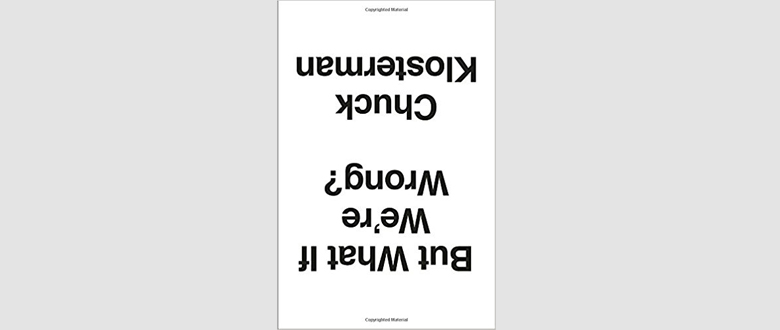Klosterman’s novel But What If We’re Wrong (2016) stems from his scepticism about the beliefs system which human beings have been carrying forward like a legacy. At the very outset, he debunks this beliefs system and speculates upon the possibility of it being false. He broaches a range of subjects from pop culture, music, sports, philosophy and science to display his uncertainty around them and the reader comprehends that the author is against all the principles of conformity.
The apparent contrarian that Klosterman is, he urges his readers to expand the horizon of their thought process and create their own truth by critically examining the given state of affairs. He underlines that believing what is being portrayed is so intrinsic to human beings that they do not even harbour the minutest idea of questioning the depicted reality. The underlying intent of the author injected by regular dose of humour is to make the readers question the cultural and scientific theories which are, by default, believed to be universally true. He implores his readers to become disassociated from the pictured truth and analyse themselves the various things around them.
He explains that the starting point is to set the premises that we are wrong, as such a process would facilitate thinking in an objective manner. The second step which he explains by touching a stream of objective and subjective issues characterising the current world is, to wonder how these things would really appear in a distant future as he supposes that, “it’s impossible to understand the world of today until today has become tomorrow.” Such an approach, he believes, would make his readers find the truth.
The author remarks that a child is not under any pressure to demonstrate his conformity with others and therefore conceives things according to his or her own reality. On similar tangents, he hopes the readers embark on such a process. However, what is striking about the Klosterman is that he doesn’t impose such a move on his readers. He is rather the one who leads by example. The work is baked with a series of interviews with various thinkers, namely, Amanda Petrusich, Brian Greene, David Byrne, Dan Carlin, George Saunders, Jonathan Lethem, Junot Díaz, Kathryn Schulz, Neil de Grasse Tyson, Nick Bostrom, Richard Linklater, and Ryan Adams among others. The author first dissects their thoughts, and then demystifies them, in order to arrive at his very own understanding around them.
The interwoven layers of thoughts of various theorists and intellectuals coupled with Klosterman’s own opinion around them define the peculiarity of the book. Through the simplicity of the language employed and wit, the author keeps the readers’ interest activated till the end.
To conclude, the book is definitely worth a read. Happy reading!
Miss. Geeta Gogia
(Assistant Professor – French)


